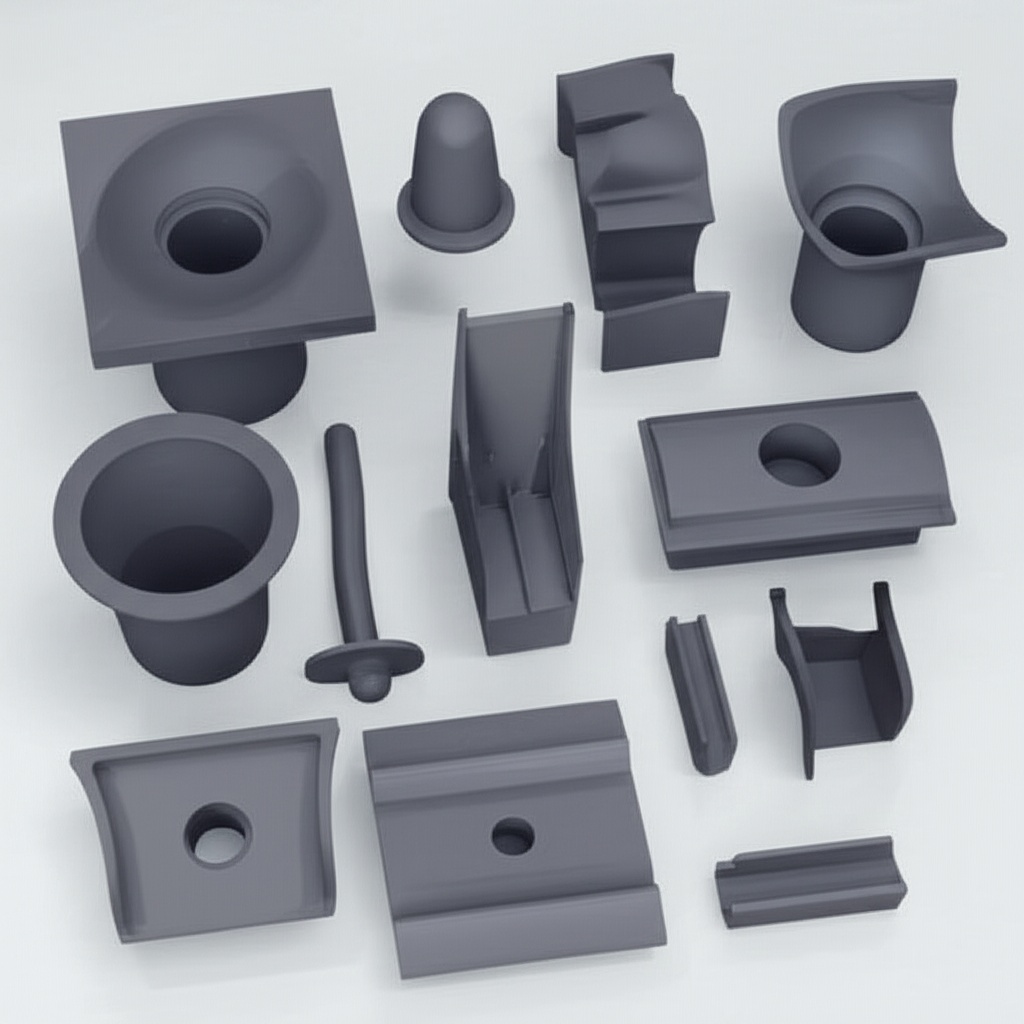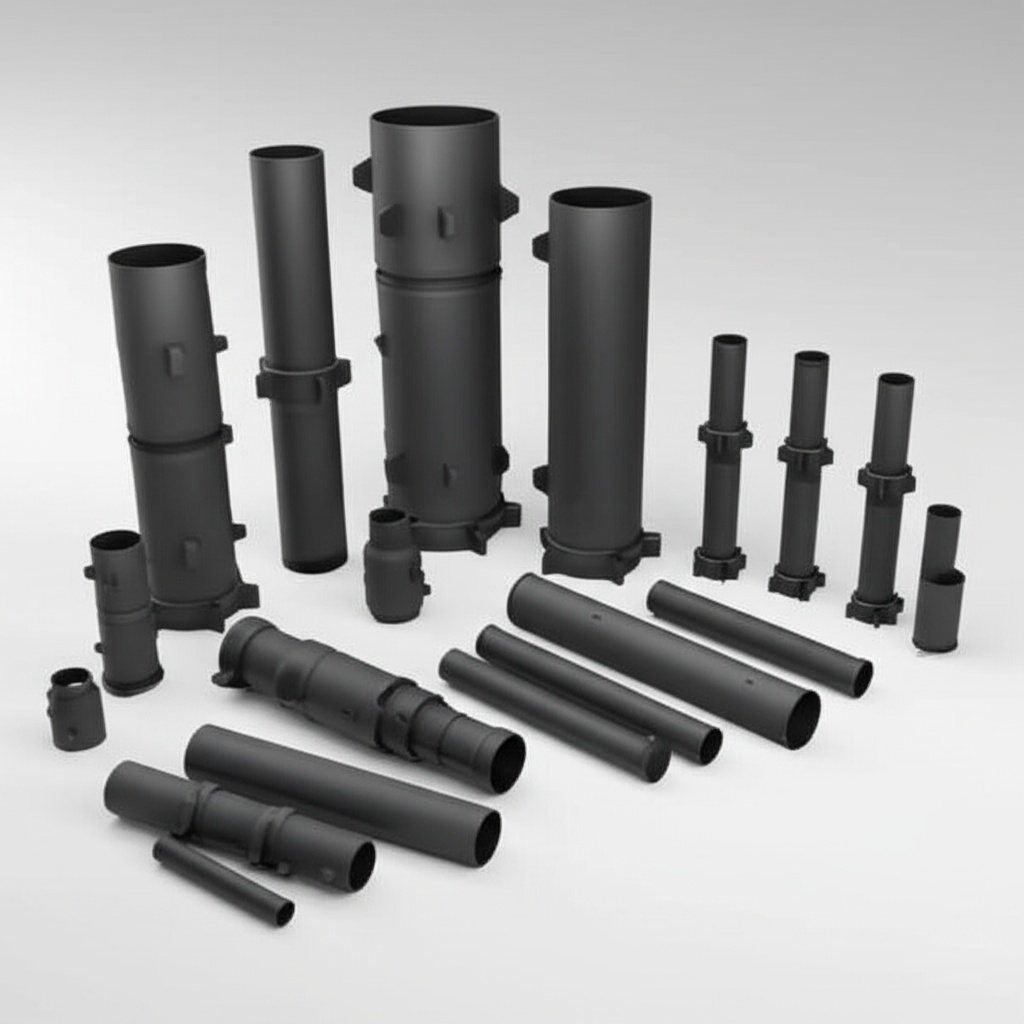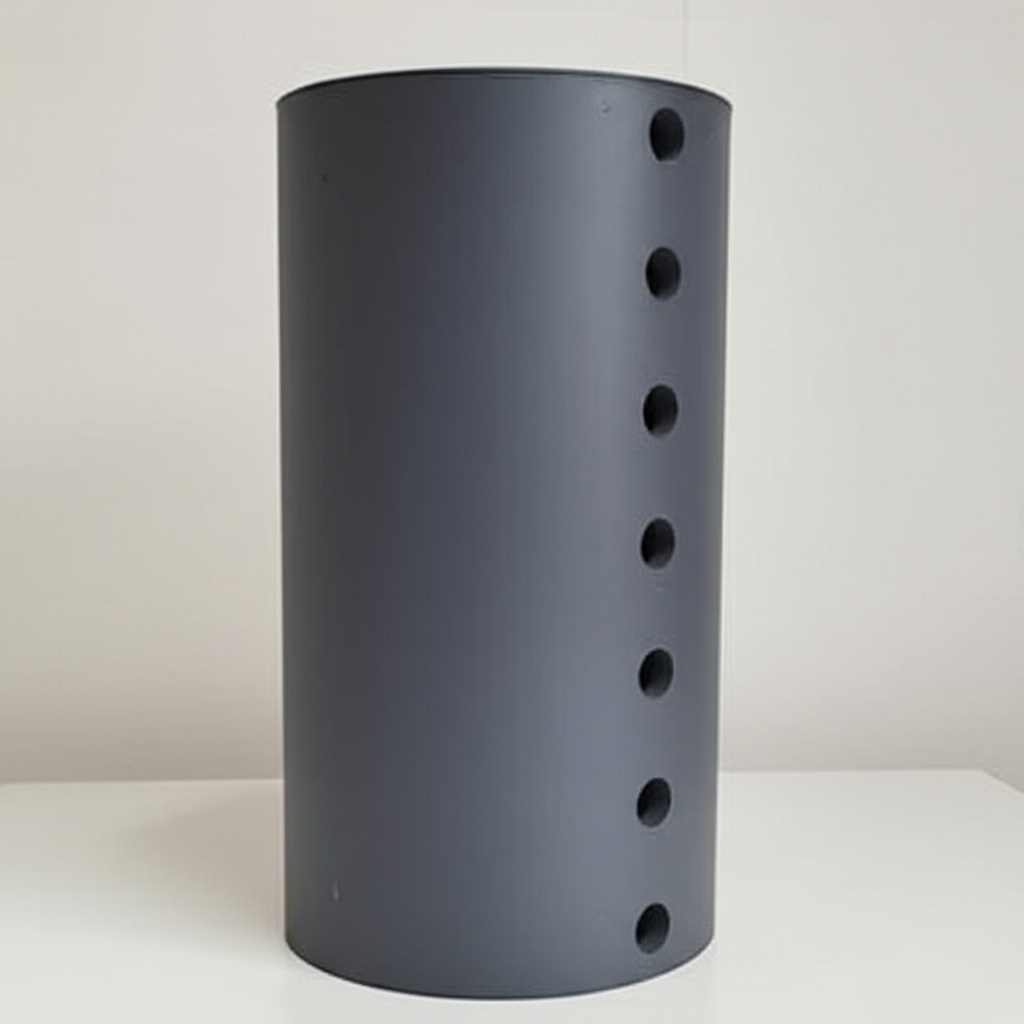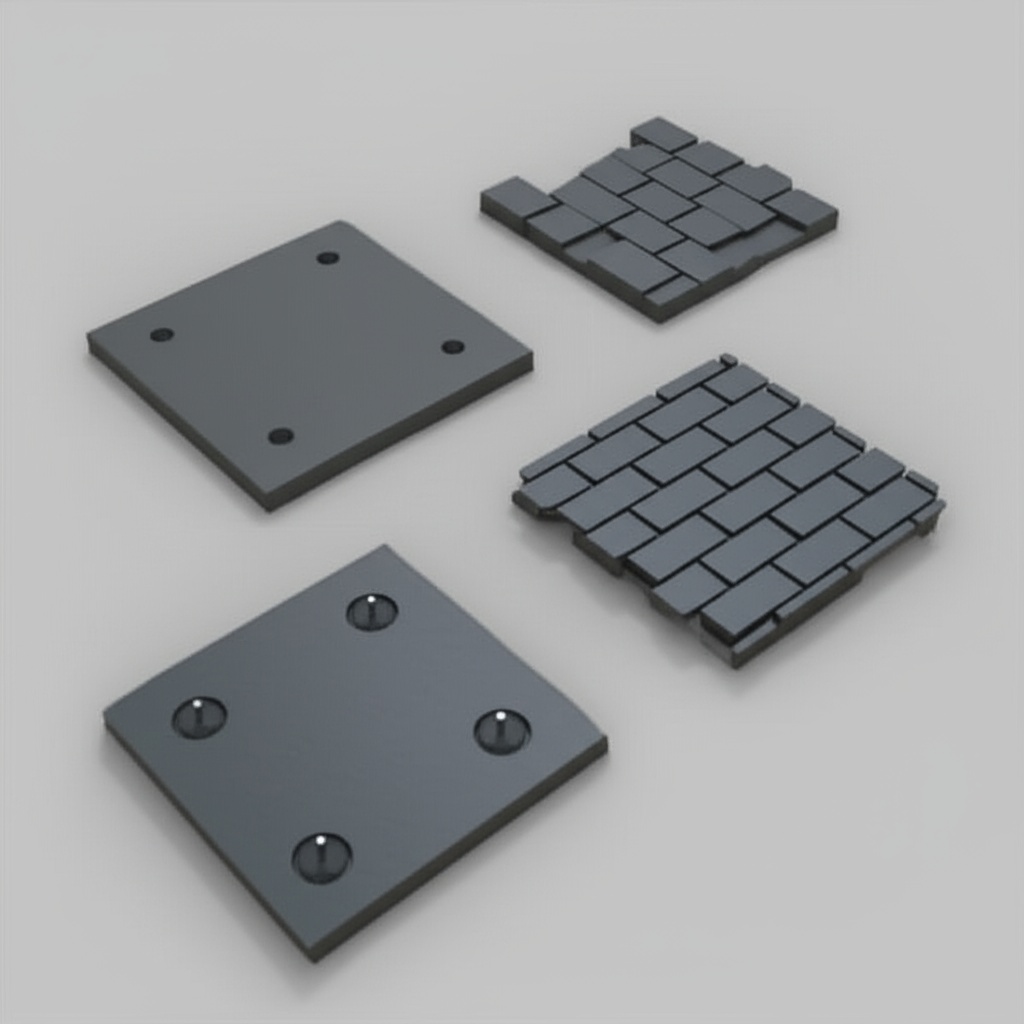SiC for Sale in India: Sourcing Tips & Tricks

Share
SiC for Sale in India: Sourcing Tips & Tricks
In today’s rapidly evolving industrial landscape, the demand for high-performance materials capable of withstanding extreme conditions is surging. Among these, silicon carbide (SiC) stands out as a material of choice for its exceptional properties. If you’re an engineer, procurement manager, or technical buyer in India looking for reliable sources of silicon carbide, this comprehensive guide offers essential insights into sourcing, applications, and supplier selection for custom SiC products.
What are Custom Silicon Carbide Products?
Custom silicon carbide products are advanced ceramic components engineered from SiC, a compound of silicon and carbon. These products are precisely designed and manufactured to meet the specific requirements of demanding industrial applications where conventional materials fall short. Known for their superior hardness, wear resistance, thermal stability, and chemical inertness, custom SiC parts offer unparalleled performance in harsh environments.
Main Applications of SiC in Key Industries
The unique properties of silicon carbide make it indispensable across a multitude of high-tech industries. Its versatility allows for critical applications where reliability and performance are paramount. Below is a breakdown of how SiC is revolutionizing various sectors:
Semiconductors
- Wafer Processing Equipment: SiC components are crucial for furnace tubes, susceptors, and other parts exposed to high temperatures and corrosive gases during semiconductor manufacturing.
- Power Devices: SiC power devices are enabling higher efficiency and smaller form factors in power electronics, driving innovation in electric vehicles and renewable energy.
Automotive
- Electric Vehicles (EVs): SiC inverters and converters improve the range and efficiency of EVs due to their ability to handle higher voltages and temperatures.
- Brake Discs & Clutch Facings: SiC’s extreme hardness and thermal conductivity make it ideal for high-performance braking systems.
Aerospace & Defense
- Lightweight Structural Components: For satellites, missiles, and aircraft, SiC offers high strength-to-weight ratios.
- Thermal Management Systems: SiC heat exchangers and hot gas components are vital in extreme temperature applications.
Power Electronics & Renewable Energy
- High-Voltage Rectifiers & Switches: SiC devices enable more efficient power conversion in solar inverters, wind turbine converters, and grid infrastructure.
- Thermal Sinks: Excellent thermal conductivity makes SiC ideal for dissipating heat in high-power modules.
Other Industrial Applications
- Metallurgy: Furnace linings, crucibles, and high-temperature rollers.
- Chemical Processing: Pump seals, valve components, and nozzles due to excellent chemical resistance.
- LED Manufacturing: Susceptors and process chamber components.
- Industrial Machinery: Wear parts, bearings, and seals in abrasive environments.
- Telecommunications: High-frequency components and substrates.
- Oil and Gas: Downhole tools and components exposed to abrasive slurries.
- Medical Devices: Precision components for diagnostic and surgical equipment.
- Rail Transportation: Wear-resistant components for braking systems and traction.
- Nuclear Energy: Structural components in high-temperature, radiation-rich environments.
Why Choose Custom Silicon Carbide?
While standard materials may suffice for some applications, custom silicon carbide offers distinct advantages, particularly for critical and high-performance industrial needs. The benefits extend beyond basic material properties to encompass tailored solutions that optimize performance and longevity:
- Unmatched Thermal Resistance: SiC maintains its mechanical integrity and strength at extremely high temperatures (up to 1600°C), making it suitable for furnace components, heat exchangers, and other high-temperature processing equipment.
- Superior Wear Resistance: Its exceptional hardness, second only to diamond, provides outstanding resistance to abrasion and erosion, significantly extending the lifespan of components in abrasive environments like pumps, seals, and nozzles.
- Excellent Chemical Inertness: SiC is highly resistant to a wide range of acids, alkalis, and corrosive gases, making it ideal for chemical processing, semiconductor etching, and other aggressive chemical applications.
- High Thermal Conductivity: This property is crucial for effective heat dissipation in power electronics, LED manufacturing, and thermal management systems, preventing overheating and improving efficiency.
- Low Thermal Expansion: SiC exhibits minimal dimensional change with temperature fluctuations, ensuring component stability and precision even under thermal cycling.
- High Stiffness and Strength: Provides structural integrity and resistance to deformation under load, essential for precision instruments and structural components in aerospace and defense.
- Customization for Optimal Performance: Unlike off-the-shelf solutions, custom SiC products are engineered to precise specifications, ensuring a perfect fit and optimized performance for your unique application, minimizing waste and maximizing efficiency.
Recommended SiC Grades and Compositions
Silicon carbide is not a monolithic material; it comes in various grades and compositions, each optimized for different applications and performance requirements. Understanding these distinctions is crucial for selecting the right material for your custom SiC product.
| SiC Grade Type | Key Properties | Typical Applications |
|---|---|---|
| Reaction-Bonded SiC (RBSiC/SiSiC) | High strength, excellent wear resistance, good thermal shock resistance, economical. Contains free silicon. | Furnace components, wear parts, heat exchangers, mechanical seals, semiconductor equipment. |
| Sintered Alpha SiC (SSiC) | High purity, superior strength at elevated temperatures, excellent corrosion resistance, high hardness. | High-temperature furnace parts, chemical pump components, nozzles, blast furnace tiles. |
| Nitride-Bonded SiC (NBSiC) | Good thermal shock resistance, high strength, relatively lower density than RBSiC. | Kiln furniture, refractory elements, abrasive blasting nozzles. |
| Chemical Vapor Deposited SiC (CVD SiC) | Extremely high purity, near theoretical density, excellent surface finish, highest stiffness. | Mirror substrates, semiconductor components, advanced optics, X-ray equipment. |
| Recrystallized SiC (ReSiC) | Good high-temperature strength, thermal shock resistance, and thermal conductivity. | Kiln furniture, structural components in high-temperature environments. |
Design Considerations for SiC Products
Designing custom silicon carbide components requires a thorough understanding of the material’s characteristics and manufacturing processes. Proper design can significantly impact performance, manufacturability, and cost. Here are key considerations:
- Geometry Limits: SiC is a hard and brittle material. Avoid sharp corners, thin walls, and abrupt changes in cross-section, which can create stress concentrations and lead to cracking during manufacturing or use.
- Wall Thickness: Aim for uniform wall thicknesses to prevent warping or cracking during firing and cooling. If varying thicknesses are necessary, ensure gradual transitions.
- Tolerances: While SiC can be machined to high precision, extremely tight tolerances can significantly increase manufacturing costs due to the need for advanced grinding techniques. Balance precision with cost-effectiveness.
- Stress Points: Identify potential stress concentration points in your design and consider incorporating radii, fillets, or stress-relieving features.
- Fastening and Assembly: Plan for how SiC components will be fastened or assembled. Consider mechanical fastening, brazing, or adhesive bonding, and design features that accommodate these methods.
- Material Grade Selection: As discussed, the choice of SiC grade influences properties and manufacturability. Select the grade that best balances performance requirements and cost.
Tolerance, Surface Finish & Dimensional Accuracy
Achieving precise tolerances and optimal surface finishes is critical for the functionality and longevity of custom SiC components. Due to SiC’s hardness, precision machining often involves diamond grinding and lapping.
- Achievable Tolerances: Standard machining can typically achieve tolerances of $pm0.05$ mm to $pm0.1$ mm. For higher precision, diamond grinding and lapping can achieve tolerances down to $pm0.005$ mm or even tighter for specific features.
- Surface Finish Options:
- As-fired/As-sintered: Rougher surface, suitable for non-critical applications.
- Ground: Smoother finish, ideal for mating surfaces and improved wear resistance.
- Lapped/Polished: Mirror-like finish, essential for sealing applications, optical components, and areas requiring minimal friction. Surface roughness ($R_a$) can be as low as 0.05 $mu$m.
- Dimensional Accuracy: Highly dependent on the manufacturing process and post-processing. Sintered and reaction-bonded SiC generally offer good dimensional stability, with minimal shrinkage during firing.
Post-Processing Needs
To further enhance the performance, durability, and specific functionalities of SiC components, various post-processing steps may be employed:
- Precision Grinding: Essential for achieving tight tolerances and specific geometries on hard SiC.
- Lapping and Polishing: Used to achieve exceptionally smooth surfaces for critical sealing, optical, or low-friction applications.
- Sealing: For porous SiC grades, sealing processes may be used to improve impermeability.
- Coating: Applying thin films of other materials (e.g., refractory metals, carbides) can enhance specific properties like corrosion resistance, erosion resistance, or biocompatibility.
- Drilling and Tapping: For creating holes or threads, specialized diamond tooling is required.
Common Challenges and How to Overcome Them
While silicon carbide offers remarkable advantages, working with it presents certain challenges. A reputable supplier will have strategies to mitigate these issues.
- Brittleness: SiC is inherently brittle, making it susceptible to chipping or fracture under impact or tensile stress.
Overcoming: Careful design to avoid stress concentrations, proper handling during manufacturing and installation, and selection of appropriate SiC grades.
- Machining Complexity: Its extreme hardness makes SiC difficult and expensive to machine, requiring specialized diamond tooling and techniques.
Overcoming: Designing for manufacturability to minimize complex machining, utilizing advanced CNC diamond grinding, and leveraging experienced manufacturers.
- Thermal Shock: While SiC has good thermal shock resistance, extreme and rapid temperature changes can still cause issues in some forms.
Overcoming: Designing with consideration for thermal gradients, selecting SiC grades with superior thermal shock properties, and implementing controlled heating/cooling cycles.
- Cost: Custom SiC components can be more expensive than conventional materials due to raw material costs and specialized manufacturing processes.
Overcoming: Optimizing design to reduce material waste, collaborating with suppliers for cost-effective manufacturing methods, and focusing on the long-term total cost of ownership (TCO) where SiC’s durability outweighs initial investment.
How to Choose the Right SiC Supplier for India
Sourcing custom silicon carbide products for your operations in India requires careful vetting of potential suppliers. Beyond price, consider their technical expertise, quality assurance, and ability to meet your specific needs.
When selecting a SiC supplier, especially for a market as dynamic as India, it’s crucial to look beyond mere product availability. You need a partner who understands the intricacies of custom SiC manufacturing and can deliver consistent quality.
We’d like to introduce ourselves: We, Sicarb Tech, have been at the forefront of silicon carbide production technology since 2015. Our roots are deeply embedded in Weifang City, China, which is renowned as the global hub for silicon carbide customizable parts manufacturing. This region is home to over 40 silicon carbide production enterprises, collectively accounting for more than 80% of China’s total SiC output. We have not only witnessed but actively contributed to the emergence and ongoing development of this local silicon carbide industry, assisting enterprises in achieving large-scale production and significant technological advancements.
Sicarb Tech operates under the umbrella of Chinese Academy of Sciences(Weifang) Innovation Park, a national-level innovation and entrepreneurship service platform that collaborates closely with the National Technology Transfer Center of the Chinese Academy of Sciences . This affiliation grants us access to the robust scientific, technological capabilities, and talent pool of the Chinese Academy of Sciences. We serve as a vital bridge, facilitating the integration and collaboration of crucial elements in the transfer and commercialization of scientific and technological achievements. This unique position allows us to offer more reliable quality and supply assurance within China.
Our team comprises domestic top-tier professionals specializing in customized production of silicon carbide products. With our support, over 437 local enterprises have benefited from our technologies. We possess a wide array of expertise, including material science, process engineering, design, measurement, and evaluation technologies, along with an integrated process from raw materials to finished products. This comprehensive capability enables us to meet diverse customization needs, offering you higher-quality, cost-competitive customized silicon carbide components. For more details on our expertise and successful projects, visit our cases page.
Furthermore, if you are considering establishing your own professional silicon carbide products manufacturing plant in your country, Sicarb Tech can provide comprehensive technology transfer and a full range of services, including factory design, procurement of specialized equipment, installation and commissioning, and trial production. This “turnkey project” approach ensures a more effective investment, reliable technology transformation, and a guaranteed input-output ratio. Discover more about our technology transfer services.
- Technical Capabilities: Does the supplier have expertise in various SiC grades (RBSiC, SSiC, etc.)? Can they handle complex geometries and tight tolerances?
- Quality Certifications: Look for ISO certifications (e.g., ISO 9001) and adherence to industry standards.
- Experience and Track Record: Review their past projects and client testimonials. A supplier with a strong portfolio in your industry is a good sign.
- Customization Support: Do they offer design assistance, material selection guidance, and prototyping services? Sicarb Tech provides extensive customizing support.
- Supply Chain Reliability: For international sourcing to India, assess their logistics and ability to deliver on time.
- Communication: Clear and prompt communication is vital, especially when dealing with technical specifications.
- Innovation and R&D: A supplier investing in research and development is more likely to offer cutting-edge solutions.
Cost Drivers and Lead Time Considerations
The cost and lead time for custom silicon carbide products are influenced by several factors:
| Cost Driver | Impact |
|---|---|
| Material Grade & Purity | Higher purity and specialized SiC grades (e.g., CVD SiC) are more expensive. |
| Design Complexity | Intricate geometries, tight tolerances, and thin walls require more specialized machining, increasing cost. |
| Volume | Larger production volumes generally lead to lower per-unit costs due to economies of scale. |
| Surface Finish & Post-Processing | Lapping, polishing, and specialized coatings add to the overall cost. |
| Tooling & Molds | Custom tooling costs are incurred for new designs, amortized over the production run. |
| Quality & Testing | Rigorous testing and stringent quality control can add to the cost but ensure reliability. |
Lead Time: Lead times vary significantly based on design complexity, chosen SiC grade, production volume, and the supplier’s current workload. Prototyping typically takes several weeks, while full production runs can range from 8 to 20 weeks or more. Discuss realistic lead times with your supplier and factor them into your project timelines.
Frequently Asked Questions (FAQ)
Q1: Is silicon carbide suitable for high-temperature applications above 1500°C?
A1: Yes, certain grades of silicon carbide, particularly Sintered Alpha SiC (SSiC), can maintain their mechanical strength and integrity up to 1600°C and even higher in specific atmospheres, making them ideal for extreme high-temperature environments.
Q2: What is the typical lifespan of a custom SiC component in a demanding industrial setting?
A2: The lifespan of a custom SiC component is highly dependent on the specific application, operating conditions (temperature, chemical exposure, abrasive media), and the quality of the SiC material and manufacturing. However, due to its exceptional wear and corrosion resistance, SiC components typically offer significantly longer lifespans than traditional materials, often lasting many years even in harsh environments, reducing downtime and replacement costs.
Q3: Can custom SiC parts be repaired or reconditioned?
A3: Due to the extreme hardness and chemical inertness of SiC, traditional repair methods are often not feasible. Minor surface damage might be addressed through re-grinding or re-lapping, but significant structural damage usually necessitates replacement. It’s crucial to design and select the right SiC grade for the expected operating conditions to maximize lifespan and minimize the need for repair.
Q4: How does Sicarb Tech ensure the quality of its silicon carbide products?
A4: At Sicarb Tech, quality assurance is paramount. Leveraging our deep integration with the Chinese Academy of Sciences and our vast experience in the Weifang SiC hub, we employ stringent quality control measures throughout the entire manufacturing process. This includes raw material inspection, in-process monitoring, and comprehensive final product testing. Our professional team utilizes advanced material, process, and measurement technologies to ensure that every custom SiC component meets the highest standards for performance, dimensional accuracy, and reliability. You can learn more about our commitment to quality on our About Us page.
Q5: How can I request a quote for custom silicon carbide parts for my project in India?
A5: Requesting a quote for custom silicon carbide parts from Sicarb Tech is straightforward. We encourage you to contact our team with your detailed specifications, including drawings, required SiC grade, application environment, quantity, and any specific performance criteria. Our technical experts will review your requirements and provide a tailored solution and quotation. Visit our Contact Us page to get started and discuss your project needs directly with our team.
Conclusion
Custom silicon carbide products represent a critical advancement in materials science, offering unparalleled performance in the most demanding industrial environments. For industries in India ranging from semiconductors to aerospace, leveraging the unique properties of SiC can lead to significant improvements in efficiency, longevity, and overall system reliability. By carefully considering design, material grades, and, most importantly, partnering with a knowledgeable and reliable supplier like Sicarb Tech, you can unlock the full potential of custom SiC solutions for your specific applications. Our expertise, rooted in the heart of China’s SiC manufacturing, ensures that you receive high-quality, cost-competitive, and technologically advanced custom silicon carbide components.

About the Author: Sicarb Tech
We provide clear and reliable insights into silicon carbide materials, component manufacturing, application technologies, and global market trends. Our content reflects industry expertise, practical experience, and a commitment to helping readers understand the evolving SiC landscape.




